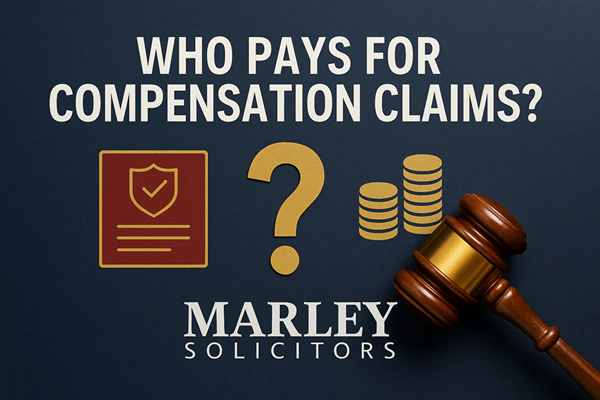If you’ve ever wondered who actually pays for compensation claims, you’re not alone. It’s a common question and a fair one. After all, when someone gets hurt or suffers a loss through no fault of their own, the money has to come from somewhere. But it’s not always as straightforward as “the person who caused it pays.”
Here’s a breakdown of who foots the bill for different types of claims in the UK:
Serious injuries
These claims often involve life-changing injuries: brain damage, spinal injuries, amputations, or long-term disabilities. If someone else was at fault (e.g., a driver, an employer, or a local council), their insurer will usually pay the compensation. If they’re uninsured, the Motor Insurers’ Bureau or employer’s liability insurance may step in.
Housing disrepair
If you’re a tenant living in poor conditions, like mould, leaks, faulty heating, or structural hazards, your landlord (or their insurance) is responsible for paying compensation. That includes councils, housing associations, and private landlords.
Medical negligence
When NHS staff or private healthcare providers make serious errors, such as misdiagnosis, surgical mistakes, or birth injuries, it’s the NHS Resolution (formerly NHS Litigation Authority) that pays out in public cases. For private healthcare, it’s typically their professional indemnity insurers.
Road traffic accidents
The most common type of claim. Here, it’s the at-fault driver’s car insurance that pays. If the driver is uninsured or untraceable (i.e., a hit and run), the Motor Insurers’ Bureau (MIB) covers the cost. You don’t claim directly from the person; it’s their insurer.
Work accidents
Employers are legally required to have employer’s liability insurance. If you’re injured at work due to unsafe conditions, lack of training, or faulty equipment, it’s that policy that pays your compensation, not your boss personally.
Employment law claims
This includes unfair dismissal, discrimination, harassment, unpaid wages, or whistleblowing. If your claim is successful through an employment tribunal, the employer themselves or relevant insurers pays out, there’s no insurance safety net unless they’ve specifically taken out legal cover.
Personal injury claims
These are broad, ranging from minor whiplash to serious fractures. Who pays? It depends on the context. In most cases, it’s an insurer (car, public liability, employer’s liability). Rarely does the individual or business directly pay the compensation unless they are uninsured or self-insured.
Slips, trips & falls
Slip on a wet floor in a supermarket? Trip over a loose paving slab on a high street? Your claim would be against the property owner or occupier, and their public liability insurance pays out. Councils, businesses, and landlords may all have this cover.
Accidents abroad
Tricky, but not impossible. If you booked a package holiday, you can often claim against the UK tour operator, who in turn may claim from their insurer. If you booked everything independently, you’d have to pursue the foreign business or their insurer. Travel insurance may award compensation depending on your policy.
Summary
In short, the person or organisation at fault rarely pays out of their own pocket, unless they’re uninsured. Insurance is almost always behind compensation settlements. Holding insurance protects individuals and companies when matters go wrong.
If you think you are eligible for compensation, do no delay, contact Marley Solicitors for free advice.


